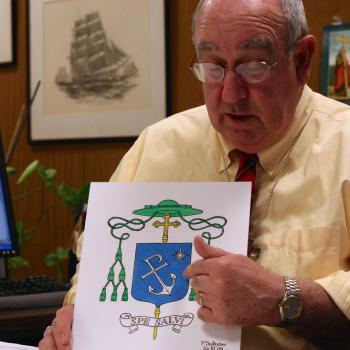Evidently irked by Phyllis Zagano’s argument in support of women deacons, Daniel Van Slyke today offers a counter-argument, in the form of an open letter to the pope, in Crisis:
The specific roles assigned to deaconesses in ancient documents such as the Didascalia Apostolorum comprise charitable services for women, the instruction of female catechumens, and the anointing of women at baptism. In other words, deaconesses ministered strictly to women, fulfilling functions that are best performed by women rather than by men, if scandal is to be avoided. Another early Christian document, the Apostolic Constitutions, prescribes: “A deaconess does not bless, nor perform anything belonging to the office of presbyters or deacons.” Deaconesses manifestly did not have a role at the altar during Eucharistic celebrations. As the ITC states in the study mentioned above, “This ministry was not perceived as simply the feminine equivalent of the masculine diaconate.” Those advocating a “restoration” of women deacons must be clear about what they wish to restore, since their arguments are based on historical models.
Yet not all of us are advocating or agitating for such a “restoration.” Some of us are mistrustful of archaeological exercises that thinly veil radical agendas under ostensible calls to restore ancient Christian practices. Many things that took place among early Christians disappeared for good reasons, under the guidance of the Holy Spirit, and need not be resuscitated today. Please be sure that the Vatican bureaucracy continues to stymie the desires of those calling for change by invoking early Christianity!
Be assured, Your Holiness, that I am not the only Catholic with no interest in women deacons. Millions of women have lived their Catholic faith and have made inestimable contributions to the Church without any desire to prance about the sanctuary in clerical garb. For the most part, they are too busy with service to their families and with works of charity to organize petitions, attend rallies, and write open letters expressing their lack of desire for female ordination.











